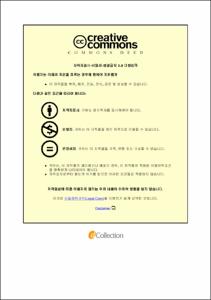중학생의 영어 자기효능감, 수업참여, 수업방법 및 학업성취 간의 종단적 관계 분석
- Abstract
- The purpose of this study was to investigate the longitudinal relationships among self-efficacy, class engagement, perceived teaching methods, and English academic achievement of Korean middle school students. The study used the data from the first three years of the Busan Education Longitudinal Study (BELS), which included 2,614 middle school students’ survey responses and achievement test results. The participants were asked about their English academic self-efficacy, class engagement, and perceptions of their teachers’ teaching methods through the questionnaires. Their English achievement was measured by annual tests each consisting of 28 test items. Multivariate Latent Growth Model (MLGM) and Autoregressive Cross-Lagged Model (ARCL) were applied to analyze the longitudinal relations and individual changes among the variables. The moderating effects of perceived teaching methods on academic achievement were analyzed by Hierarchical Regression Analysis.
The results of the study are as follows. First, middle school students’ English academic self-efficacy and class engagement decreased over time while academic achievement increased slightly every year. Individual development trajectories of the variables showed that students with high self-efficacy or active class engagement were not likely to experience dramatic growth in their self-efficacy or class engagement respectively, while students with lower self-efficacy or inactive involvement were expected to have greater growth in the following years. On the other hand, students with high achievement were likely to have greater growth afterwards.
Second, the MLGM analysis revealed that the intercepts of self-efficacy and class engagement, respectively, affected the intercept of academic achievement. Also, the slope of self-efficacy affected the slope of academic achievement. This means that the increase of self-efficacy can lead to higher academic achievement.
Third, the ARCL model verified the positive cross-lagged effects of self-efficacy and class engagement on academic achievement and vice versa. The self-efficacy of the first year and the class engagement of the second year showed greater effects on the following year’s academic achievement. The autoregressive effects of all the variables were statistically significant throughout the years.
Lastly, the moderating effects of perceived teaching methods on academic achievement were examined; the results indicated that student-centered teaching methods had negative effects on the relation between self-efficacy and achievement in the first and third year. Similarly, student-centered teaching affected the relation between class engagement and achievement in the second year. However, teacher-centered teaching did not seem to have any significant moderating effects.
The findings from the study showed that Korean middle school students’ academic self-efficacy and class engagement have a continuing influence on their English academic achievement. Since middle school students’ self-efficacy and class engagement tend to decline with the course of time, developing their self-efficacy and promoting class engagement are crucial. Moreover, how to apply student-centered teaching methods in class needs to be carefully considered. Further research on other variables which can affect English academic achievement will shed light on English education.
- Issued Date
- 2021
- Awarded Date
- 2021. 2
- Type
- Dissertation
- Publisher
- 부경대학교
- Affiliation
- 부경대학교 대학원
- Department
- 대학원 영어영문학과
- Advisor
- 박매란
- Table Of Contents
- Ⅰ. 서론 1
1.1 연구의 필요성 1
1.2 연구 목적 및 연구 과제 3
1.3 논문의 구성 4
Ⅱ. 이론적 배경 5
2.1 자기효능감 5
2.1.1 일반적 자기효능감 5
2.1.2 학업적 자기효능감 7
2.1.3 선행연구 9
2.2 수업참여 12
2.2.1 수업참여 12
2.2.2 선행연구 14
2.3 수업방법 16
2.3.1 교사 중심 수업방법 17
2.3.2 학습자 중심 수업방법 19
2.3.3 선행연구 20
2.4 학업성취 23
III. 예비 연구 26
3.1 연구 과제 26
3.2 연구 대상 27
3.3 연구 도구 27
3.4 분석 방법 29
3.5 결과 및 논의 30
3.6 예비 연구의 결론 및 보완점 36
Ⅳ. 연구 방법 39
4.1 연구 대상 39
4.2 연구 도구 40
4.2.1 학생 설문 40
4.2.2 성취도 검사 44
4.3 자료 수집 및 분석 방법 45
4.3.1 잠재성장모형 47
4.3.2 자기회귀교차지연모형 49
4.3.3 위계적 회귀분석 50
Ⅴ. 결과 분석 및 논의 51
5.1 기술통계 및 상관분석 51
5.1.1 기술통계 51
5.1.2 상관분석 52
5.2 자기효능감, 수업참여, 학업성취의 발달궤적 55
5.2.1 자기효능감의 발달궤적 55
5.2.2 수업참여의 발달궤적 58
5.2.3 학업성취의 발달궤적 59
5.3 자기효능감과 학업성취, 수업참여와 학업성취의 종단적 관계 61
5.3.1 자기효능감과 학업성취의 잠재성장모형 적합도 61
5.3.2 자기효능감과 학업성취 간 경로효과 분석 62
5.3.3 수업참여와 학업성취의 잠재성장모형 적합도 63
5.3.4 수업참여와 학업성취 간 경로효과 분석 65
5.4 자기효능감과 학업성취, 수업참여와 학업성취의 인과관계 66
5.4.1 자기효능감과 학업성취의 인과관계 66
5.4.2 수업참여와 학업성취의 인과관계 71
5.5 수업방법의 조절 효과 검정 75
5.5.1 교사 중심 수업방법의 조절 효과 76
5.5.1.1 자기효능감과 학업성취 간 조절 효과 76
5.5.1.2 수업참여와 학업성취 간 조절 효과 79
5.5.2 학습자 중심 수업방법의 조절 효과 81
5.5.2.1 자기효능감과 학업성취 간 조절 효과 81
5.5.2.2 수업참여와 학업성취 간 조절 효과 83
Ⅵ. 결론 및 제언 86
6.1 연구의 결론 86
6.2 교육적 함의 89
6.3 연구의 제한점 및 후속 연구 방향 92
참고문헌 94
부록 108
- Degree
- Doctor
- Files in This Item:
-
-
Download
 중학생의 영어 자기효능감, 수업참여, 수업방법 및 학업성취 간의 종단적 관계 분석.pdf
기타 데이터 / 1.4 MB / Adobe PDF
중학생의 영어 자기효능감, 수업참여, 수업방법 및 학업성취 간의 종단적 관계 분석.pdf
기타 데이터 / 1.4 MB / Adobe PDF
-
Items in Repository are protected by copyright, with all rights reserved, unless otherwise indicated.